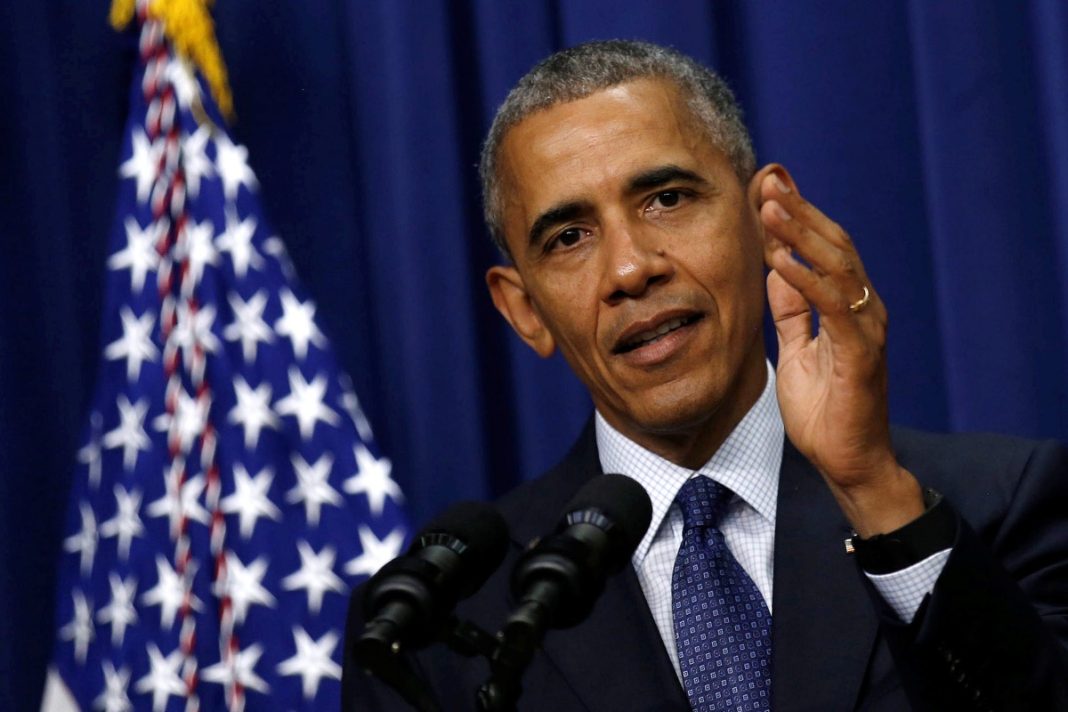CHICAGO, USA – Former President Barack Obama offered a reflective and nuanced analysis of the ongoing conflict between Israel and Gaza during a reunion with his aides in Chicago, expressing a degree of self-critical introspection about his administration’s efforts in the Middle East.
Speaking to thousands of his former staff and in an interview for the podcast “Pod Save America,” on Friday, November 3, 2023, Mr. Obama grappled with the complexities of a struggle that has persisted for over a century.
“I look at this, and I think back, ‘What could I have done during my presidency to move this forward, as hard as I tried?’” Obama said, pondering the effectiveness of his policies. “But there’s a part of me that’s still saying, ‘Well, was there something else I could have done?’”
Entering the White House with high hopes of resolving the Israeli-Palestinian conflict, Obama left eight years later having experienced significant tensions with Prime Minister Benjamin Netanyahu of Israel.
These tensions were partly due to Obama’s instrumental role in negotiating the Iran nuclear deal and his pressure on Israel to halt settlement expansions.
During his comments, Mr. Obama acknowledged the deep-seated emotions and historical grievances fueling the conflict, attributing an exacerbation of these sentiments to the polarizing nature of social media.
He criticized it for boiling down a complex international issue into reductive slogans.
Despite identifying the atrocities committed by Hamas as “horrific,” he simultaneously pointed to the unbearable circumstances faced by Palestinians under occupation.
Mr. Obama highlighted the importance of recognizing the historical experiences of the Jewish people, including the scourge of antisemitism, alongside acknowledging the current suffering on both sides.
“What Hamas did was horrific, and there’s no justification for it,” Obama stated, underscoring the tragic toll on innocent lives. “And what is also true is that the occupation and what’s happening to Palestinians is unbearable.”
He continued: “And what is also true is that there is a history of the Jewish people that may be dismissed unless your grandparents or your great-grandparents, or your uncle or your aunt tell you stories about the madness of antisemitism. And what is true is that there are people right now who are dying, who have nothing to do with what Hamas did.”
Yet, even as he navigated these perspectives, Obama seemed to concede the difficulty of translating this multifaceted understanding into immediate action to protect lives, especially children, caught in the crossfire. “Even what I just said, which sounds very persuasive, still doesn’t answer the fact of, all right, how do we prevent kids from being killed today?” he expressed with a sense of urgency.
“But the problem is that if you are dug in on that, well, the other side is dug in remembering the videos that Hamas took or what they did on the 7th, and they’re dug in, too, which means we will not stop those kids from dying,” the former US POTUS added.
Obama’s remarks reflect a broader struggle among policymakers and former leaders to reconcile past actions with ongoing violence in the region. As each side remembers past grievances and injustices, Obama seemed to suggest, the path forward remains fraught with challenges, making the quest for peace as urgent as it is elusive.







